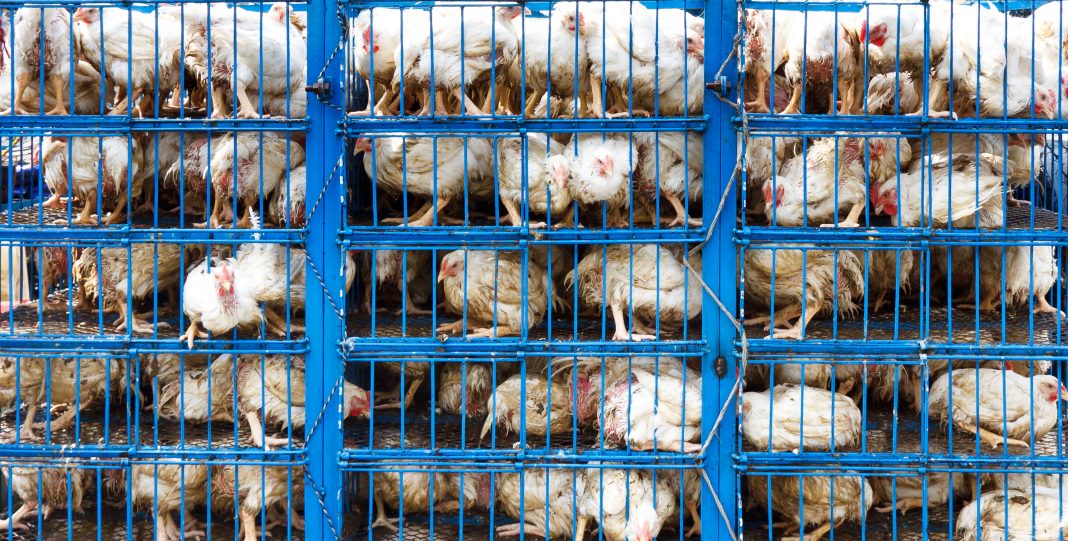Yew-Kwang Ng, Emeritus Professor from the Department of Economics, at Monash University in Australia, argues the case for reducing animal suffering at negligible costs to human beings
Animal welfare protection has been of important practical concern in many countries globally. For example, in Australia, the Federal Government appointed an independent panel in 2023 to consult on the transition from live sheep export to a better future for animals. Also, opposition to recreational duck hunting/shooting has gained more popular support.
Farmed animals’ welfare
I have discussed the conceptual issues of animal welfare previously:
How to reduce animal suffering with welfare biology?, and Towards welfare biology: Evolutionary economics of animal consciousness and suffering. Here, I will just focus on some simple ways to reduce animal suffering at low, and even negative, costs to humans.
One area in which we have a high ability and compelling obligation to reduce animal suffering enormously is the animals we farm for food, especially chickens. In contrast to wild animals, the farmed animals are under our care, and we eat their milk, eggs, and even their bodies. If they also suffer from a miserable life, we commit double evils.
Reduce suffering, and increase animal well-being
On the other hand, if we could reduce their suffering and increase their well-being to levels such that their net welfare is positive (i.e. more enjoyment than suffering), there are no valid moral grounds for refraining from meat eating. If we did not eat animal milk, eggs, and meat, they would not have a life to live. If this life is positive in net welfare, it would be better for them than not existing at all.
As the farmed animals are under our care, we can do simple things that could reduce their suffering enormously at little cost to ourselves. For example, shifting from factory chicken farming to free-range farming will almost certainly increase their net welfare from a very negative level to a rather high positive level. Even just significantly increasing the cage sizes would reduce suffering substantially.
The opposition of chicken farmers on the grounds of higher costs and lower profits is primarily based on misinformation. The supply of eggs and chicken is under the condition of a very high degree of competition. This enables chicken farmers to earn only normal profits in the long run. Animal protection measures such as cage size restrictions would not reduce chicken farmers’ profit levels in the long run. They would just increase the prices of eggs and chicken.
Thinking about meat consumption
In most developed countries like Australia and the UK, such price increases would only affect some people a little. For many, they may encourage them to eat less meat. As most people in such countries are already consuming excessive amounts of meat, such a change makes them better off, creating a case of negative human costs.
If there are some people with really very low incomes and may be made significantly worse off by the higher prices of milk, eggs, and meat, the appropriate way to address the problem is to try to increase their income levels, not to make them face prices lower than the actual total costs of supply, including the external costs on environmental disruption and animal suffering, as I discuss in the earlier piece Welfare economics: Promoting equality through general policies.
Stricter regulations to reduce animal suffering
Similarly, stricter regulations to reduce animal suffering may also make humans healthier and happier. Realising this, the public in general and animal farmers in particular, may be more supportive of measures to reduce animal suffering.
Furthermore, even without benefiting from these measures, many consumers are willing to pay higher prices on moral grounds to benefit the animals themselves.
Obviously, extreme cruelty to animals that really serves no good purpose should be banned outright. For example, Bekoff reports that ‘whipping horses (in horse racing) is pointless and does not make a difference in the outcome of the race’ and ‘increased whip use was not associated with significant variation in velocity’.
Even if whipping effectively increases the speed, it should still definitely be completely banned. Suppose rigorous whipping increases the speed by x%. After banning, the speed of all horses decreases by about x%. Since this applies to all horses in the race, it does not really matter. Problems such as unfairness arise only if some horses are allowed to be whipped and some are not. As banning should apply to all, no real problems are created, but we save much suffering for the horses.
Fish welfare in Hong Kong
For another example, fishmongers in the wet markets in Hong Kong (probably in some other places as well) cut eels into two halves alive, with them wriggling in pain to attract customers and show that their fish is very fresh. I argued with them that this would inflict pain on the eels. No one challenged me on this. However, one replied, ‘If I cannot sell the fish, I will also suffer pain!’
Even assuming that the fishmongers are correct in thinking that the practice helps them sell fish, it should still be banned. The pain of being cut into halves and wriggling in pain till death is too big to be tolerated. Moreover, stopping a fishmonger from using the practice only hurts him if others continue to do the same. If all fishmongers are stopped from this cruel practice, they can still sell fish at virtually the same rates.
More on animal welfare
For further discussion, click here.

This work is licensed under Creative Commons Attribution-NonCommercial-NoDerivatives 4.0 International.


